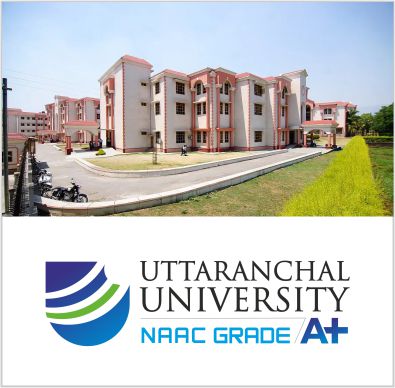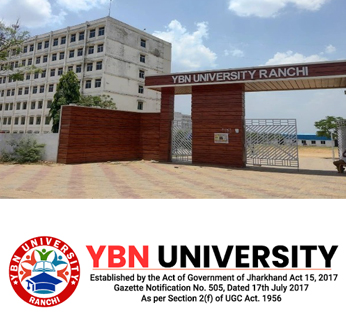Degree – Bachelor
Full Form – Bachelor Of Arts
Duration – 3 Years
Eligibility – 12th Passed

A title
Image Box text
Bachelor of Education
Bachelor of Education or B Ed degree is a 2-year professional program for individuals aspiring to be teachers in school, colleges and other institutions. B Ed course is crucial for those who want to pursue a career in teaching and is a common qualification for teaching positions. B Ed curriculum majorly deals with educational psychology, teaching methodologies, curriculum development, educational technology, and classroom management.
B.Ed Admission takes place both through merit and entrance exams, mostly B Ed State Exams. Each state’s admission focuses on training teachers for their own states. Hence, eligibility criteria for B.Ed differs from one state to another since the admission process is also unique in every state of India. Although students from all over India can apply for any state B Ed Admission process, it must be kept in mind that there are various reservation benefits enjoyed by students from that particular state. Learn More: B Ed Syllabus
B.Ed graduates are qualified to work as teachers in schools, colleges, or other educational institutions. Job profiles include teacher, assistant professor, lecturer and counsellor with an average salary ranging from INR 3 – 6 LPA. Learn More: B Ed Jobs and Salary
B Ed Eligibility Criteria
Different colleges or states have different sets of requirements or eligibility criteria in order to apply for a BEd course; however, the general BEd eligibility criteria are the same.
- The candidate must be a graduate. He/she should secure more than 50% marks in the final graduation exam.
- The candidates who belong to either of the reserved categories i.e. SC/ST/OBC/PWD have a 5% relaxation in the minimum aggregate score required. This however depends on the college or state they are applying in.
- Few colleges have a minimum age limit of 19 years in order to apply for BEd admission.
Why Study Bachelor of Education?
B.Ed full form Bachelor of Education makes the aspirants skilled in the principles of teaching and learning. It improves the candidate’s soft skills and helps them improve their communication skills so that they can understand the individual demand of the students and guide them properly. Let us observe some of the points in detail to understand why the B.Ed Course is important.
- A necessity for Government jobs: The National Council of Teachers Education mandates that the candidates who opt to pursue a teaching career in government schools must have a B.Ed Course. Even private schools prefer teachers with a B.Ed degree.
Key Highlights of BED Course

Flexible Learning Mode:
BED Course gives students choices in how they learn. They can pick different study times, like online classes, weekends, or part-time sessions, to fit their studies around their other commitments.

Updated Course Curriculum:
Curriculum stays current with what’s happening in industries today. It’s regularly updated so that students learn things that are relevant and useful in real life.

Write the exam in your chosen language:

Doubt clearing session:
Your One Stop Solutions

Fill The Basic Details
Get one step closer to your dream career with the right course.

Select Your Course
Help us know you better with basic information & few questions.

Explore Your Option
Don't limit yourself, explore top universities with our specially designed list

Compare & Get The Best
Compare top universities on different aspects like Student rating, Govt Approvals.
Admission Process
(How to Apply?)

Submit Form
Fill in and submit your application form online.

Expert’s Counseling
You will receive a call from our expert counselor

Choose University
Select the course & university according to your interest

Online Payment
You need to make a smooth online fee submission

Admission Confirmation
You will get an admission confirmation on your Email
Let's Clear up some doubts ?
Technical requirements may vary depending on the course and learning platform, but typically include a reliable internet connection, a computer or mobile device, and compatible software or web browsers. Specific requirements will be outlined in the course description or syllabus.
Yes, one of the advantages of online courses is that course materials are often accessible 24/7, allowing students to study at their own pace and convenience.
Online courses typically offer communication tools such as discussion forums, email, messaging systems, and live chat sessions where students can interact with instructors and peers. Instructions for accessing these communication channels will be provided within the course platform.
Yes, online courses typically have deadlines for submitting assignments, participating in discussions, and completing exams or quizzes. It's important to review the course syllabus or schedule to stay informed about important dates and deadlines.
It depends on the course and the institution offering it. Some online courses offer certificates of completion or professional development credits, while others may be eligible for transfer credit at colleges or universities. Check with the course provider or your academic institution for details on credit options.
Most online course platforms offer technical support services to help students troubleshoot issues with accessing course materials, navigating the platform, or using specific features. Look for contact information or help resources within the course platform for assistance.













